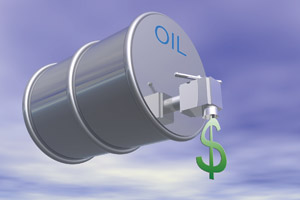
Features
Fuel
Purser: Oil complicates aviation’s future
The explosion in the price of oil – it was heading toward $150 US per barrel in early July – has certainly had a dramatic effect on the aviation industry.
October 8, 2008 By Richard Purser

|
Some, like WestJet, Ryanair and Bombardier react with boldness
The explosion in the price of oil – it was heading toward $150 US per barrel in early July – has certainly had a dramatic effect on the aviation industry. Fuel has leaped as a percentage of airline operating costs, resulting in hefty surcharges on airfares. The Air Transport Association of America puts the additional cost of fuel to U.S. airlines this year at $20 billion US, which puts them in a terrible bind; the industry’s total profit in its best year, 1999, was only $5.3 billion US.
So service is being cut back on routes where passenger demand cannot possibly outweigh the added cost; the U.S. Bureau of Transportation Statistics says 38 airports in that country lost all scheduled air service in the year ended in June. Airlines are vying with each other in laying off staff and grounding planes – except for some lower-cost airlines that hope to gain from the woes of the more expensive-to-operate “legacy” carriers.
WestJet, while cutting back on some routes and even suspending or eliminating a few (Toronto-Los Angeles, Calgary-Newark), is basically in an expansionist mode and is increasing fall/winter services to selected sunspots. It is introducing some new domestic routes (Calgary-Grande Prairie, Calgary-Kamloops), and is forming an alliance with its model, U.S. discount carrier Southwest Airlines, in its effort to capitalize on Air Canada’s problems.
In Europe, Ireland’s fiercely competitive Ryanair is going after the leavings of costlier carriers. Among these, British Airways is trying to hook up with Iberia, just as Air France has with KLM and Lufthansa with SWISS, and as somebody must surely do with hopelessly money-losing Alitalia.
In the U.S., Delta and Northwest’s pilots have approved a merger that by year-end should create the world’s largest carrier, and who knows what other alliances will form, even in the wake of the failure of United Airlines and US Airways to merge.
While Boeing and Airbus appear unfazed by all this, the possibility of cutbacks in airliner orders is very real. This raises the question of whether Bombardier was wise to announce the launch of its CSeries at Farnborough in July – on the strength of only a letter of intent for 30 firm orders and 30 options from Lufthansa. It definitely took courage (whether inspired or foolhardy) for CEO Pierre Beaudoin to make the decision. One thing certain is that there will be endless squabbles over the Canadian, Quebec and British government subsidies involved in the decision. But that is an old story for Bombardier. Subsidy issues were heavily aired during Bombardier’s previous tussles, such as with Brazil’s Embraer – and the CSeries may bring further competition from that quarter. (Although the CSeries will be assembled and partly built in Quebec, the wings will be made by Bombardier’s Belfast unit, hence the British government’s involvement.)
On the bright side, oil fell to around $115 US a barrel by mid-August. As for whether it will continue to fall or to rise again, there are as many views as there are economists.
Views of oil’s future include, at one end, the prediction that before long children will be wide-eyed with wonder at tales of how people used to zip around the world in metal tubes at several hundred miles per hour, tens of thousands of feet above the ground.
At the other end, there is the famous 2005 prediction of Sheikh Ahmed Zaki Yamani, who cut quite a figure on the world stage as Saudi Arabia’s oil minister from 1962 to 1986: “The Stone Age didn’t end for lack of stone, and the oil age will end long before the world runs out of oil.”
That presupposes the rise of a new technology. By coincidence, the evening this article was being wrapped up, with the radio on in the background, my ear caught wisps of an interview with one David Sanborn Scott (Ideas, CBC Radio 1), who is on the decidedly apocalyptic side of the energy debate. He believes that with the levels of CO2 already in the atmosphere, we are probably past the tipping point for global-warming catastrophe (drastic sea level rise, mass desertification of remaining land, famine, wholesale refugee movements, war). But he does hold out one hope. And since Dr. Scott, of Victoria, B.C., is vice-president of the International Association for Hydrogen Energy, we know what that is. The 108-minute, two-part interview – which contains specific references to air transport – can be downloaded from the CBC’s website. This year, Dr. Scott published a book, Smelling Land: The Hydrogen Defense Against Climate Catastrophe, which I hope to read and comment on later.